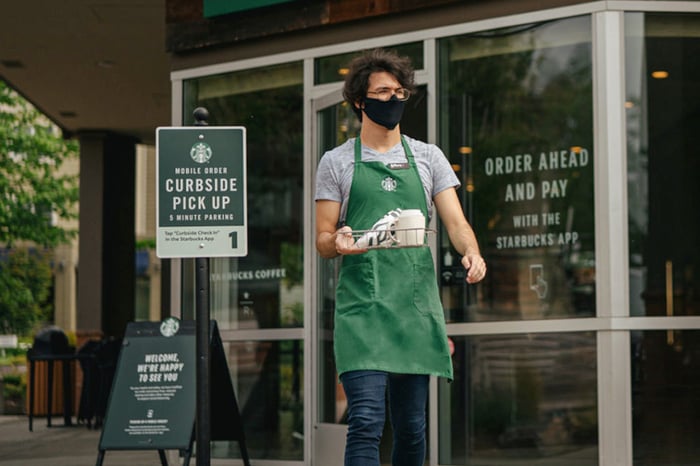The UK has one of the most vibrant and diverse hospitality sectors in the world. Our pubs and restaurants are recognised internationally as some of the best, attracting visitors and tourists abound.
But for a sector built around entertainment, community and bringing people together, the impact of Covid was inevitably going to be considerable.
Before we uncover more about the evolving hospitality landscape in the UK, here’s a brief overview of how Covid has affected the industry.
Between April 2020 to the end of March 2021, the sector generated £46 billion for the UK economy. That’s -64% on £126.8bn from the previous 12 months.
Around £220m of sales were lost every day, affecting 143,000 businesses and causing 342,000 job losses.
This catastrophic decline reflected the wave of nationwide lockdowns and severe trading restrictions UK hospitality businesses faced during that time.
Fortunatly, as we moved through the pandemic, the hospitality sector adapted to the changing restrictions. The proportion of businesses temporarily closed fell from 81% in the spring 2020 lockdown to 54% in the early 2021 lockdown (Office for National Statistics).
Finally, on July 19, virtually all restrictions were lifted in the UK, allowing hospitality businesses to trade as close to normal since the pandemic began.
According to OpenTable figures, which track online, phone and walk-in table bookings, diner numbers rebounded to 56% of pre-pandemic levels in the first week post-lockdown two. Furthermore, in Q2 of 2021, hospitality was responsible for 40% of the UK’s total economic growth, representing improved consumer confidence in the market.
As we head further into 2021 signs of recovery continue to emerge, but this has not come without its hurdles.
What’s changed and what’s next?
Staff Shortages and Supply Issues
Since trading resumed, hospitality businesses have reported short supply issues. In fact, 20.4% of accommodation and food service operators currently have issues getting goods or services. According to UK Hospitality, the reason supply chains buckled under the pressure of Covid is essentially the fact that they were fragile, to begin with.”
The hospitality sector needs to reevaluate the impact supply chains have on their businesses – particularly in times of economic turbulence. Having more visibility over first-tier suppliers and improving supplier relationship management should be priorities moving forward.
Supply issues are not the only problem. The BBC has reported that one in five workers have left the sector during the coronavirus pandemic, with Covid and Brexit often cited as exacerbating the problem. For staff that have returned to their roles, the so-called “pingdemic” has led to further shortages due to workers having to isolate.
There were 102,000 vacancies in the sector from April to June 2021 – that is a rise of 12.1% compared with the 91,000 figure for the same period in 2019.
According to the Confederation of British Industry (CBI), staffing shortages could last for up to two years and will not be solved by the ending of the furlough scheme. In the coming months, the government will be called to provide greater flexibility for the apprenticeship levy and align skill policies with the highest unfilled vacancies.
Some believe however, that working cultures within hospitality is the issue. Long hours, no breaks and chaotic shift patterns are just some of the complaints from staff. Therefore, highlighting these issues and creating a better working environment is likely to help with staff retention.
“It’s about making sure that hospitality is seen to be a nice place to work, pays well, looks after you, with health and wellbeing at the top of the list.” – Kate Nicholls, Chief Executive of UK Hospitality
Changing Consumer Behaviours
The pandemic has dramatically affected ‘the way we do things.’ Lockdowns made us accustomed to working remotely, isolating in our homes and relying on online services. As a result, we even had more time to browse, read, learn and become more educated on economic and environmental issues.
People are now much more cautious in their approach to day-to-day activities. According to Hospitality Net, consumers now pay considerably more attention to an establishments’ security, hygiene, and health procedures. Consumers are also more conscious about their economic footprints. A 2020 global survey by management consultancy firm Accenture said that consumers “have dramatically evolved”, with 60% stating they have made more environmentally friendly, sustainable, or ethical purchases since the start of the pandemic.
Looking ahead, businesses that do not consider digitalization, flexibility, health & wellness, sustainable procedures or diversified products will lag behind other more forward-thinking leaders, (Hospitality Net).
Read more about how to meet guest expectations in hospitality beyond the pandemic.
Technology

Home delivery services, contactless payments, online ordering, medical appointments through video conferencing, and online purchasing have accelerated digitalisation adoption.
A Go Technology report found that 76% of UK consumers are satisfied with the ease of ordering from digital solutions, whilst 40% feel safer in venues that use mobile tech.
While mobile ordering and payment has been a growing trend for years, the pandemic has massively accelerated adoption. As a result, food delivery grew by £3.7bn in 2020 to reach £11.4bn – double its 2015 market value.
Hospitality businesses followed suit and adopted contactless menus with integrated mobile ordering to offer guests a fast, touch-free service.
With technology in the industry moving at high speed, an ever-growing challenge is managing this myriad of new systems. In line with hotel automation, contactless table service, and providing a seamless tech experience, integrations will be more critical than ever in 2021.
Innovation

Over the past 18 months, the industry has demonstrated true creativity. We have seen hotels turn into offices and create ‘smart rooms’. Top restaurants open-up their kitchens for home delivery or takeaway services. Ghost kitchens, contactless ordering and pick-up lanes are now popular amongst QSR’s and most have turned to digital platforms to drive guest engagement and revenue.
These trends have now become a source of competitive advantage. New products that don’t consider digitalisation, changing consumer behaviours, staff wellness, sustainable procedures or diversified products are now likely to lag behind their more visionary competitors.
Post-lockdowns, hospitality businesses have proven to be incredibly resilient and agile enough to adapt their operations in various ways. Gov.com states that, ”This adaptability gives hope that the businesses that have survived the pandemic, and those that follow, will emerge stronger than before.”
To further drive recovery, the government’s, ‘Reopening, Recovery, Resilience,’ hospitality strategy states that they will work with the sector to develop dynamic new operating models by identifying and overcoming barriers to innovation, including regulation.
The UK economy is expected to return to its pre-pandemic level in Q1 2022 with growth of 5.1% projected for next year.
As Charles Darwin stated once: “It is not the strongest of the species that survives, nor the most intelligent. It is the one that is most adaptable to change.”
To learn more about how wi-Q can help your hospitality business innovative and stay reactive and resilient in this digital age, reach out to our team on info@wi-q.com